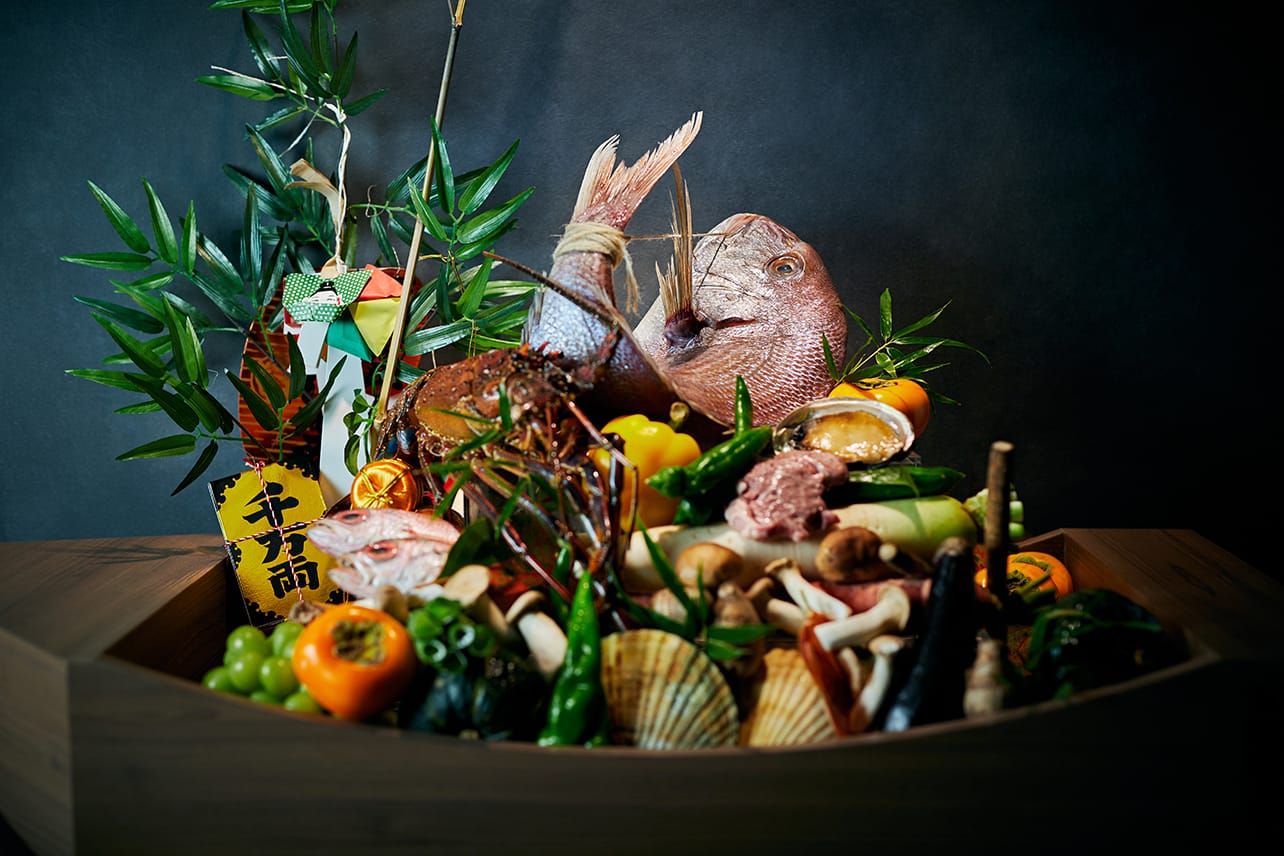By Florenda Corpuz
As Osaka prepares for Expo 2025, a unique dining experience is emerging in the heart of Umeda. Shinon Washoku Senryū, operated by Senryu Inc., is more than just a restaurant. It is a tribute to the sacred connection between food, nature, and tradition. Since opening in December 2024, this intimate establishment has been redefining washoku, elevating it into a spiritual experience that honors Japan’s cultural heritage.
At the core of Shinon Washoku Senryū lies the concept of osagari, the practice of sharing sacred offerings with the gods. Each month, the restaurant’s chefs and staff visit Nishinomiya Shrine, home to Ebisu, the deity of prosperity, to receive blessings and have key ingredients, knives, and utensils purified. On special days, diners can witness this ceremony firsthand, gaining deeper insight into the spiritual significance of food.
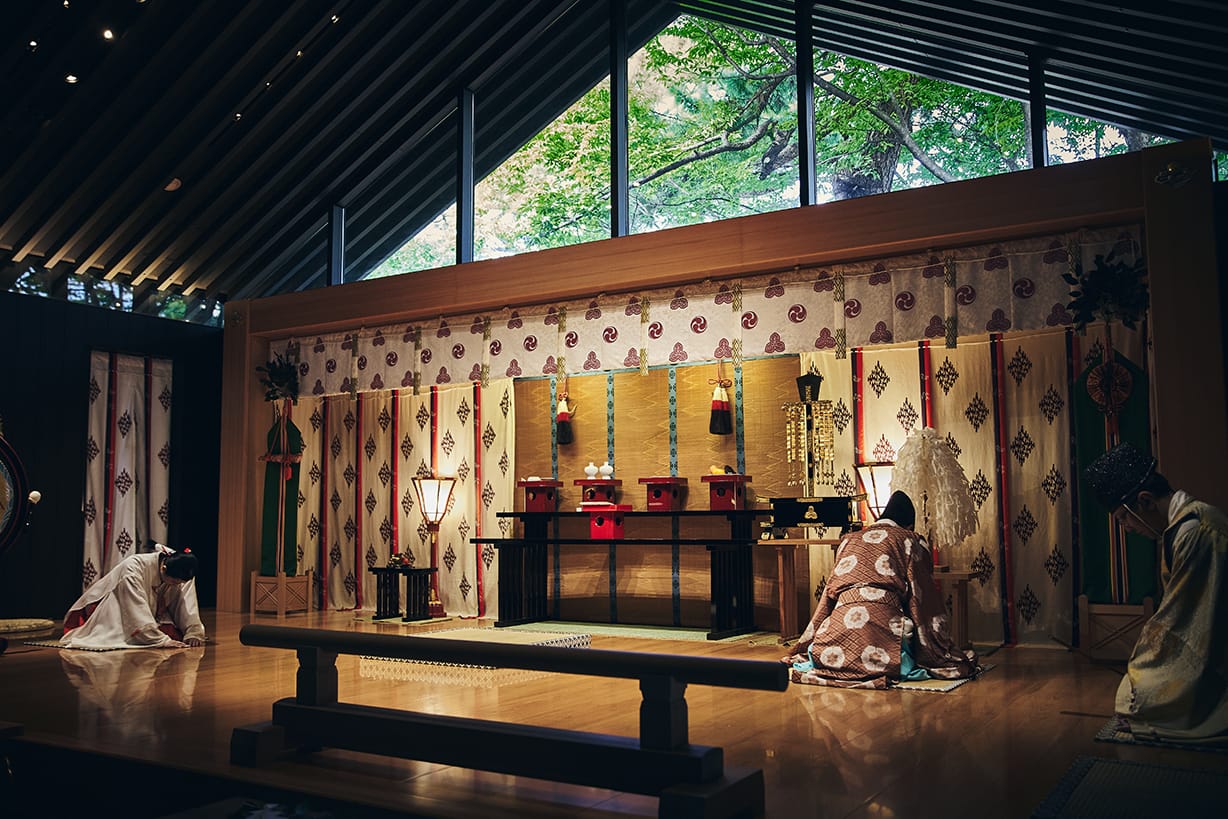
This philosophy stems from the Kibayashi family’s deep-rooted history in Japanese cuisine. Yasuyuki Kibayashi, the second-generation owner of Senryu Inc., spent five decades managing izakayas before reflecting on the spiritual meaning of eating. His successor, Yoshinori Kibayashi, embraced this vision, merging it with his family’s 114-year culinary legacy to create Shinon Washoku. The name was given under the guidance of a Shinto priest from Ise Jingu, one of Japan’s most important shrines. “Shinon” conveys the belief that to eat is to partake in life’s natural cycles and connect with ancestors, rooted in Shinto’s idea that everything in this world is both a deity and a gift from the gods. “Washoku” is characterized by balanced flavors, seasonal and local ingredients, and ritualistic elements of its consumption. At Shinon Washoku, each meal is an offering, and every bite carries a connection to the divine.
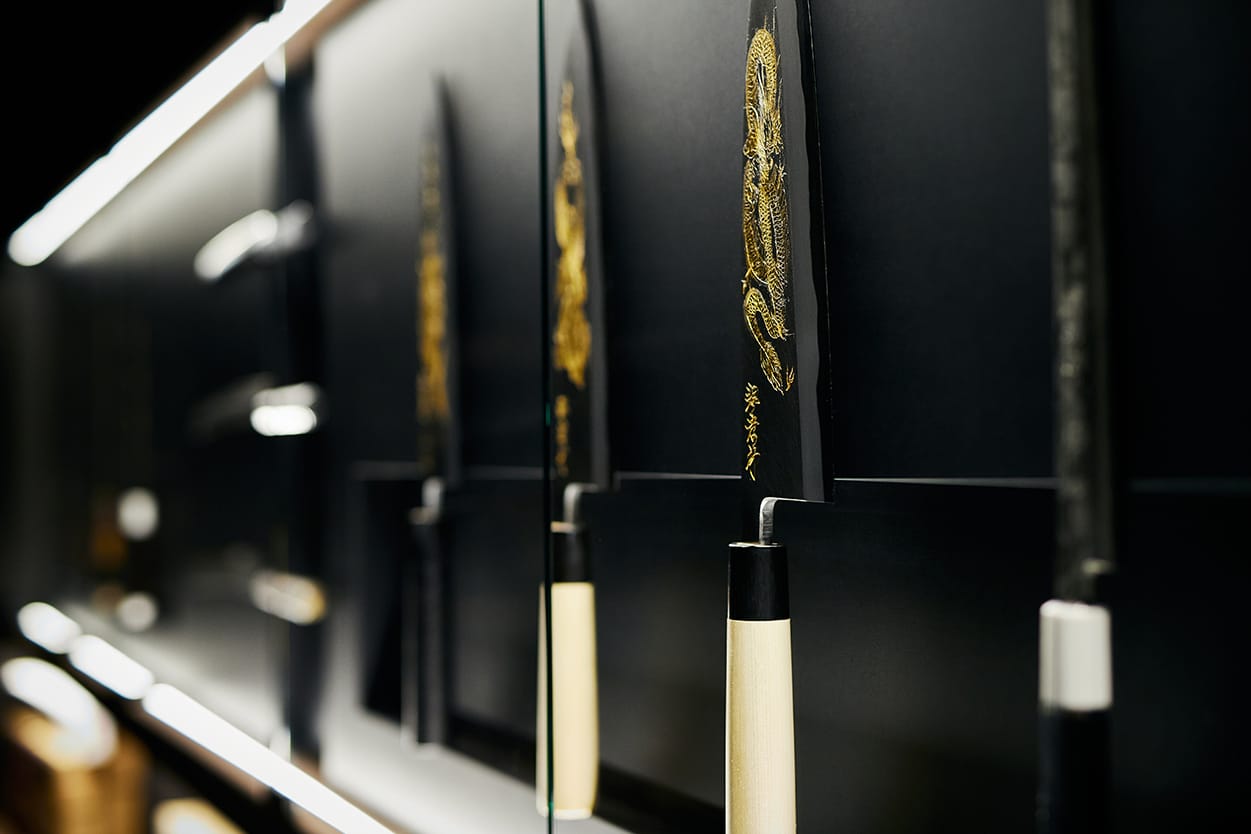
Shinon Washoku Senryū incorporates spiritual practices in its kitchen. Certain ingredients are purified, and the restaurant uses a specially crafted Sakai Takayuki knife, blessed at Nishinomiya Shrine.
“Not all ingredients require purification,” explains Yoshinori Kibayashi to Filipino-Japanese Journal (FJJ), “but our philosophy is rooted in the belief that nature itself is divine. Every meal we serve is a gift from the gods.”
For head chef Fumio Furutani, who has spent 47 years mastering Japanese cuisine, the journey continues. “At the beginning of my career, there were moments when I wanted to cry,” he shares with FJJ. “But now, when customers say ‘Oishii,’ I know all the hard work was worth it.”
He joined the restaurant in February last year and played a key role in its opening.
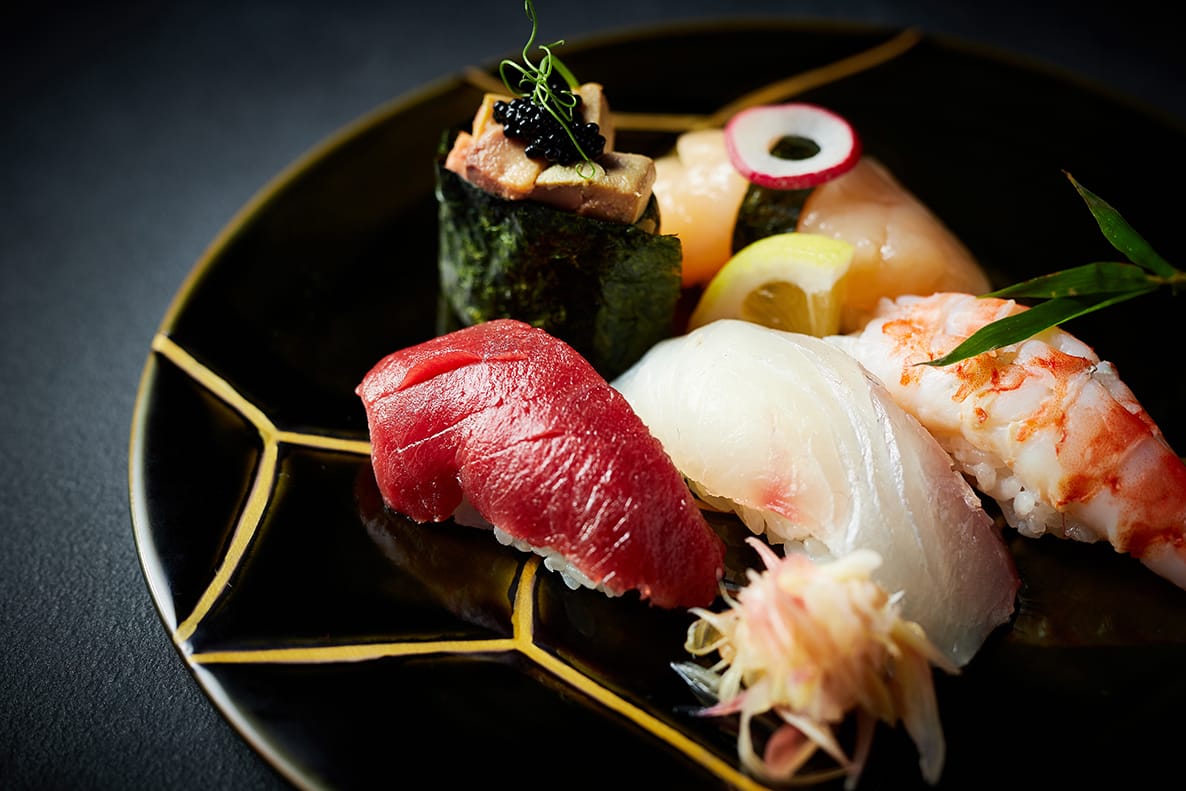
The menu at Shinon Washoku Senryū evolves monthly, reflecting the natural cycles of life. Signature offerings include the Shinon Kaiseki courses and the Chef’s Selection Shunkei, each dish carefully curated to showcase seasonal ingredients. A standout is the Shinon Mochi and Sake Pairing Set, featuring rice cakes once offered to the gods at Nishinomiya Shrine, prepared in five ways and paired with a sake tasting set.
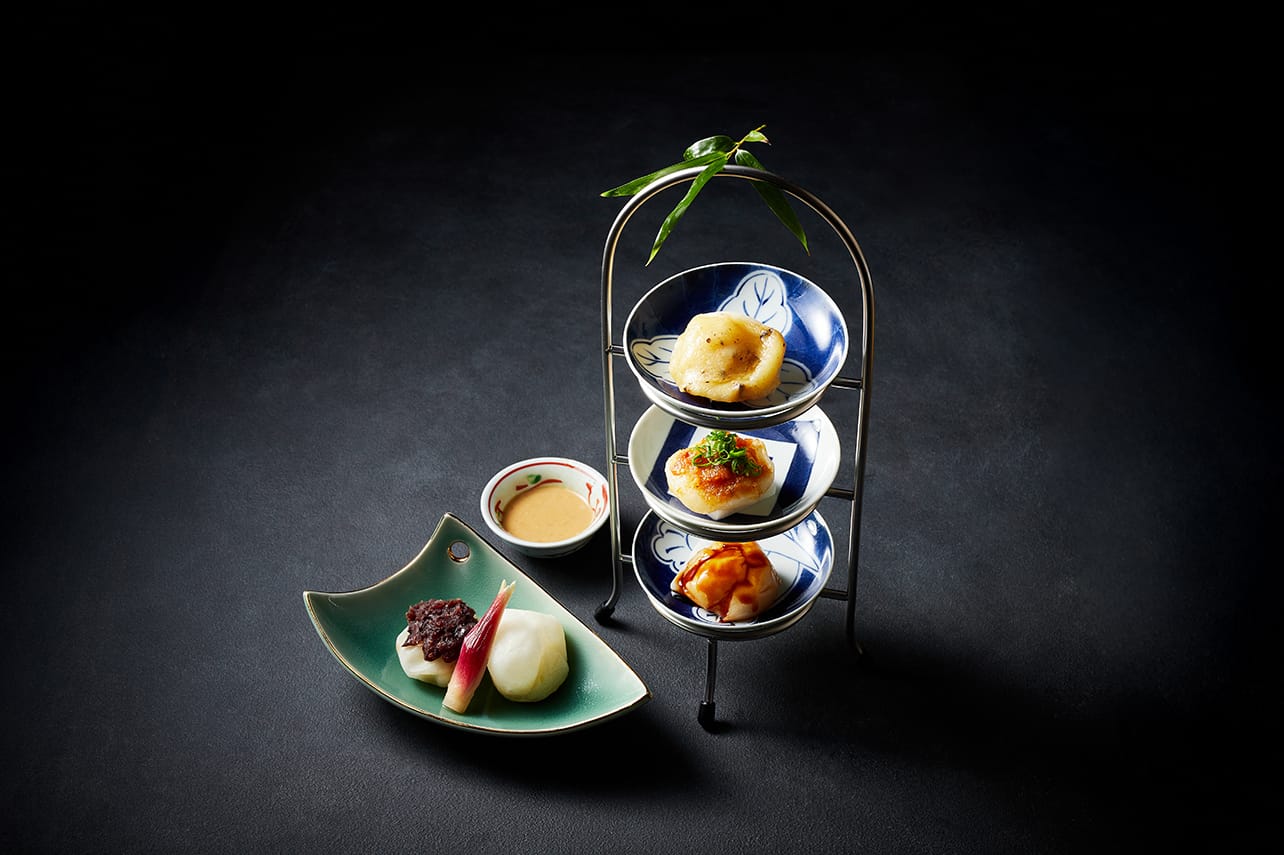
Course menus range from 5,000 to 30,000 yen, while à la carte options provide a more flexible dining experience. With only 18 seats, the restaurant ensures an intimate atmosphere where every guest can fully appreciate the artistry behind each dish.
Beyond its cuisine, Shinon Washoku Senryū serves as a gateway to Japanese culture. Guests can admire Sakai Takayuki knives engraved with depictions of Ebisu and the auspicious seabream, both symbols of prosperity. These exquisite knives, purified at the shrine, are available for purchase, allowing diners to take home a piece of Japan’s culinary heritage.
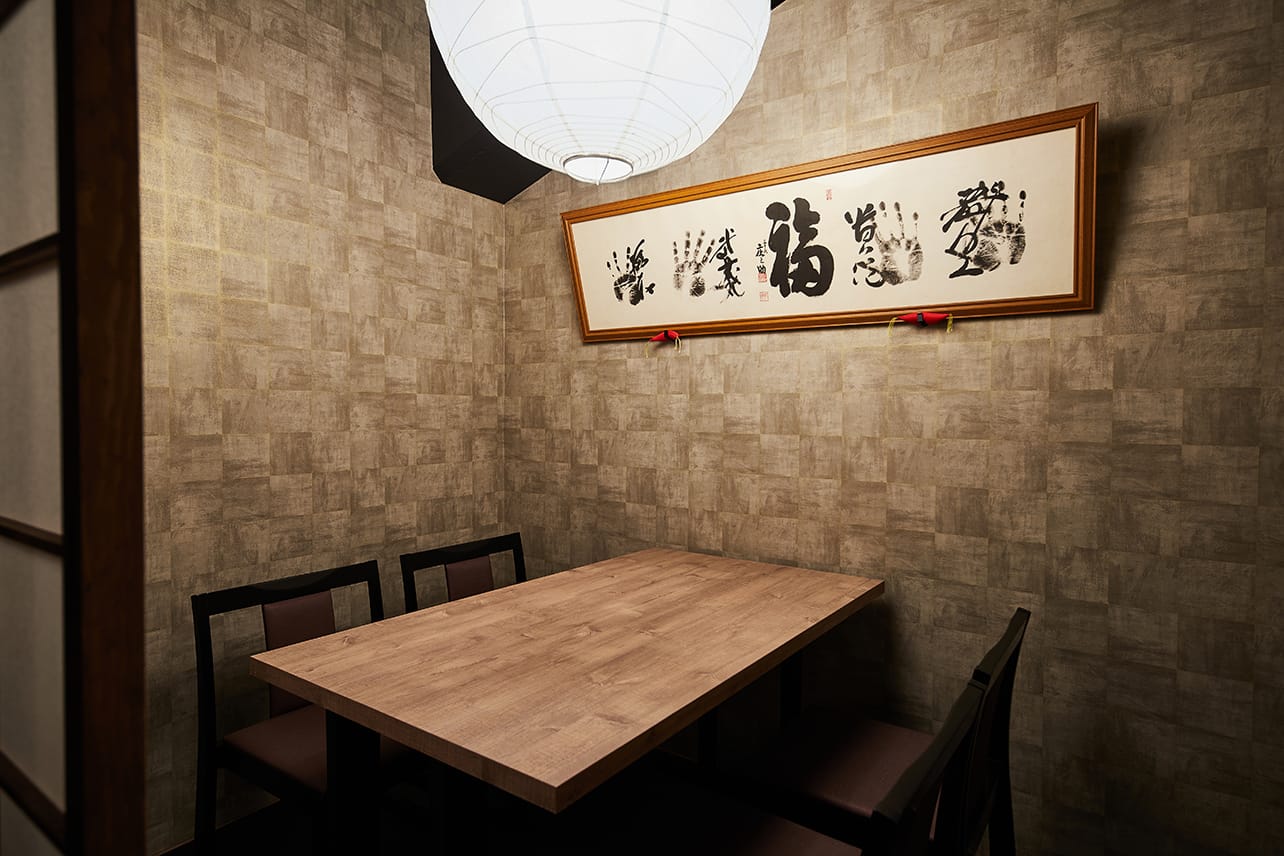
The restaurant’s interior further reinforces its spiritual essence. Each room features auspicious symbols, from the Seven Lucky Gods to the handprint of a sumo Yokozuna, honoring Japan’s rich traditions. “The Seven Lucky Gods represent diversity,” says Kibayashi. “They come from Japan, China, and India, just as our cuisine is shaped by a blend of influences.”
Bringing Japan’s Culinary Philosophy to the World
While still in its early days, Shinon Washoku Senryū aims to become a cultural landmark for international visitors. “Tourist spots alone cannot convey the philosophy behind washoku,” notes Kibayashi. “Through our cuisine, we want global guests to understand how the Japanese view life, food, and the cycle of existence.”
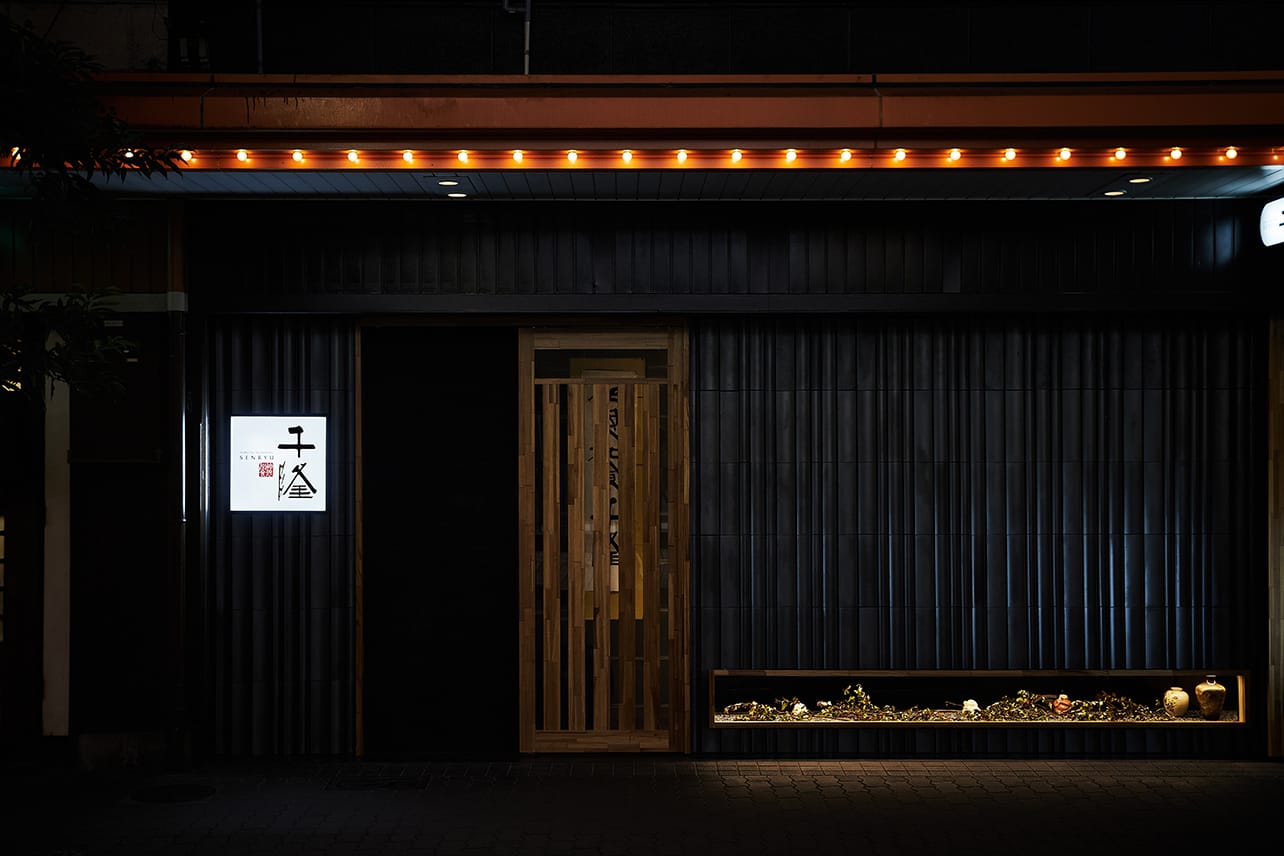
Blending sacred rituals with culinary artistry, Shinon Washoku Senryū is more than a restaurant; it is a spiritual journey. As Osaka welcomes the world for Expo 2025, this exceptional dining experience offers visitors a rare glimpse into Japan’s timeless traditions.

